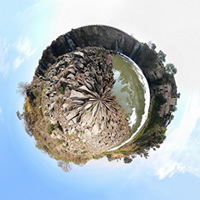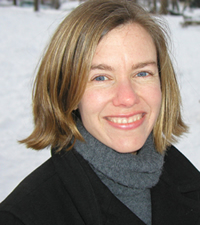 Kim Fortun — Measuring Exposure Science
Exposure science aims to understand how environmental stressors (pollution, built environments, diet, cosmetics, deforestation, global warming) impact human and ecological health. Focusing on different scales, using an array of measurement and modeling techniques, exposure science works to draw out connections that are hard to see, to make sense of, and to respond to. Exposure science can also be projective, aiming to anticipate both stressor loads and health outcomes of the future. Kim Fortun will map and measure the challenges – for exposure science themselves, and to the knowledge politics of industrial culture writ large.
Kim Fortun is an anthropologist and Associate Professor in the Department of Science and Technology Studies at Rensselaer Polytechnic Institute. Her research focuses on how "the environment" is understood and governed in different historical, geographic and organizational contexts. In 2010, she will complete a 5-year term as co-editor (with Mike Fortun) of Cultural Anthropology.
 Sarah Igo — Knowing Citizens
Monitoring the inner life of national populations — their private beliefs and desires — became a key ambition of governments, corporations, and scientists in the twentieth century. Examining the U.S. case, this talk traces how citizens became known, and with what effects on subjectivity and social life.
Sarah E. Igo is Associate Professor of History at Vanderbilt University with interests in twentieth-century cultural and intellectual history, the history of the human sciences, and the sociology of knowledge. She is the author of The Averaged American: Surveys, Citizens and the Making of a Mass Public and is currently writing a cultural history of modern privacy.
This session of the Sensing the Unseen seminar is complete. Commentary and documentation from this session can be found on our blog. A podcast of this session can be found here, or download MP3 files of this session from the links below:

|